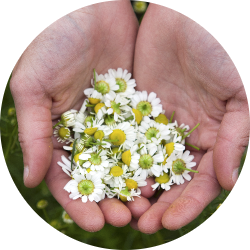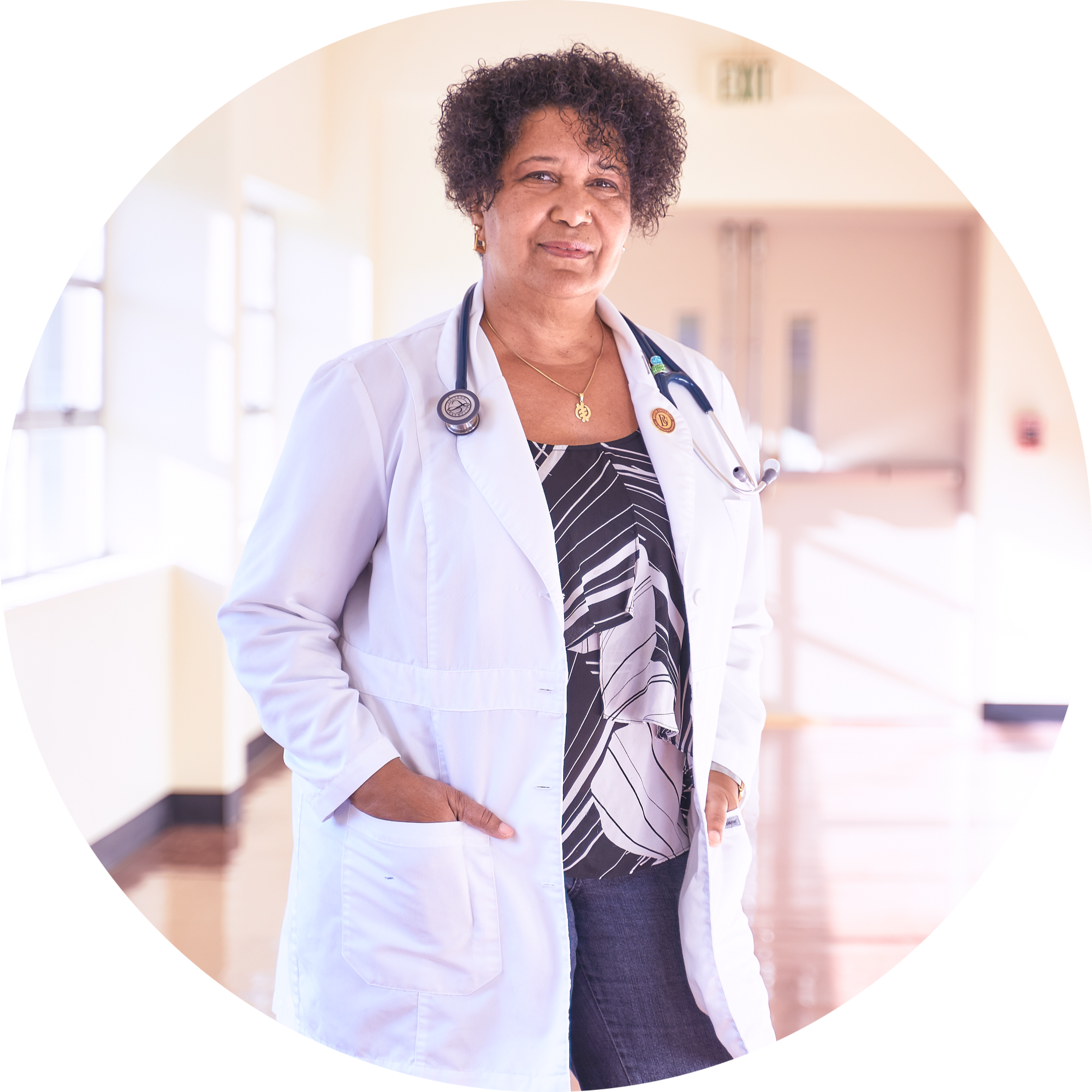Like other primary care providers, naturopathic doctors diagnose, treat and manage patients with acute and chronic conditions. They utilize natural therapies in conjunction with medical and clinical science to emphasize disease prevention and support the body's natural healing process. NDs typically spend more time with each of their patients than their counterparts in conventional medicine, allowing them to form deeper and more meaningful patient-provider relationships to determine the root cause of illness.
NDs diagnose patients by focusing on the underlying causes of disease and promote self-healing and wellness through therapies that integrate conventional, scientific and empirical methodology with the inherent abilities of the natural world to provide a foundation of healing and wellbeing. Naturopathic therapies are supported by research drawn from peer-reviewed journals from a variety of disciplines, including (but not limited to) naturopathic medicine, conventional medicine, clinical nutrition, psychology and spirituality.
Discover what you can do as a naturopathic doctor – explore careers, salaries and more on the blog.

Are naturopathic doctors the same as naturopaths?
According to the Association of Accredited Naturopathic Medical Colleges (AANMC), traditional naturopaths and licensed naturopathic doctors both aim to identify and prevent the underlying causes of disease, but the two titles are not interchangeable. A licensed naturopathic doctor (ND) must complete rigorous scientific, medical and naturopathic training to diagnose patients and prescribe treatment. Traditional naturopaths are not trained or qualified to do either.
What’s the Difference Between a Licensed Naturopathic Doctor (ND) and a Naturopath?
Licensed ND
Naturopath
Primary care physician who is trained to diagnose, prevent and treat acute and chronic illness
Can serve as a health consultant or wellness coach, but may not diagnose or treat illness
Over 4,100 hours of instruction
Classes offered mostly online
Graduates from a four-year, in-residence doctoral degree program accredited by the council on Naturopathic Medical Education (CNME), which is recognized by the US Department of Education
No standard curriculum, and the schools are not accredited by CNME
1,200 hours of supervised, hands-on clinical training
No standardized, on-site clinical training
Can work in private or group practice, integrative oncology care, hospitals, medical schools, and some government organizations
Not eligible to take the NPLEX national exams or obtain license to practice in the U.S.
Are able to see clients in unregulated states and provinces
Are able to see clients in unregulated states and provinces
Naturopathic diagnostic and therapeutic modalities include:
- Clinical laboratory diagnostic testing
- Nutritional medicine
- Botanical medicine
- Naturopathic physical medicine
- Public health measures
- Minor surgery
- Homeopathy
- Prescription medication
- Intravenous and injection therapy
- Counseling
Check out our blog to learn more about some of the many modalities of Naturopathic Medicine.

ND vs MD: What’s the difference?
For those who want to provide hands-on primary patient care, the decision between becoming an ND, MD/DO, or nurse practitioner can be difficult. While the three careers have much in common, some key elements of practice and education define their major differences. Read more on the blog.
Naturopathic Doctor (ND)
![[MKG] [PROGRAM] [EBOOK] ND - Chapter 1 ND Image](https://educate.bastyr.edu/hs-fs/hubfs/RS4475_BL8I9987.png?width=2534&height=2534&name=RS4475_BL8I9987.png)
Combining the wisdom of nature and the rigors of modern science, NDs are primary care providers who diagnose, treat and manage patients while addressing disease and dysfunction at the level of body, mind and spirit.
Medical/Osteopathic Doctor
![[MKG] [PROGRAM] [EBOOK] ND - Chapter 1 M/OD Image](https://educate.bastyr.edu/hs-fs/hubfs/RS4176_BL8I2019.png?width=2534&height=2534&name=RS4176_BL8I2019.png)
Medical doctors (MD/DO) are physicians, specialists or surgeons who take a biological approach to healing, utilizing various tests and techniques to diagnose patient symptoms and develop a treatment plan to address the disease.
Nurse Practitioner
![[MKG] [PROGRAM] [EBOOK] ND - Chapter 1 NP Image](https://educate.bastyr.edu/hs-fs/hubfs/%5BMKG%5D%20%5BPROGRAM%5D%20%5BEBOOK%5D%20ND%20-%20Chapter%201%20NP%20Image.png?width=2534&height=2534&name=%5BMKG%5D%20%5BPROGRAM%5D%20%5BEBOOK%5D%20ND%20-%20Chapter%201%20NP%20Image.png)
Nurse practitioners (NPs) blend clinical expertise in diagnosing and treating health conditions with an added emphasis on disease prevention and health management. They bring a comprehensive perspective and more personal touch to the care they provide.
Do NDs, MDs/DOs, and NPs ever work together?
NDs view natural remedies as complementary as well as primary. NDs cooperate with other medical professionals, referring patients to (and receiving patients from) conventional medical doctors, surgeons and other specialists.
Primary Care Training
| ND | MD/DO | NP | |
| Medical Assessment & Diagnosis | |||
| Patient Management | |||
| Communication & Collaboration | |||
| Professionalism | |||
| Career Development & Practice Management | |||
| Systems-based Practice | |||
| Practice- Based Learning, Research & Scholarship |
Required Education & Training
Educated in many of the same basic sciences as an MD/DO, naturopathic medical training encompasses the basic sciences, as well as conventional and functional diagnostic methods, and natural and conventional treatments. Like the other two primary care paths, NDs must pass rigorous professional board exams before they can be licensed by a state or jurisdiction.
In addition to a standard medical curriculum, NDs are trained in clinical nutrition, homeopathic medicine, botanical medicine, physical medicine, psychology and counseling.
Take Your Next Steps with Bastyr
Connect with Admissions
Our admissions advisors are here to help you choose the right program for your future.
Visit Bastyr's Campus
We would love for you to see what our campuses have to offer. You can take a tour, either virtually or in-person.
Apply to Bastyr Today
You've read our guide and hopefully have a better idea of what naturopathic doctors do. Are you ready to apply?
